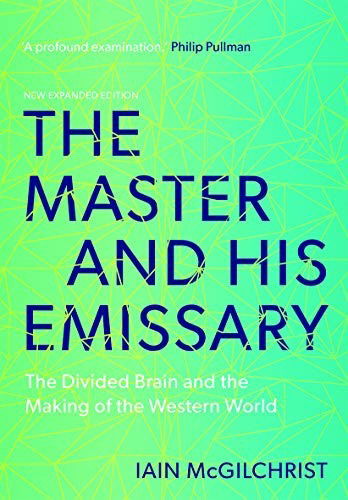Reflections on Descartes, Reflections on Religion
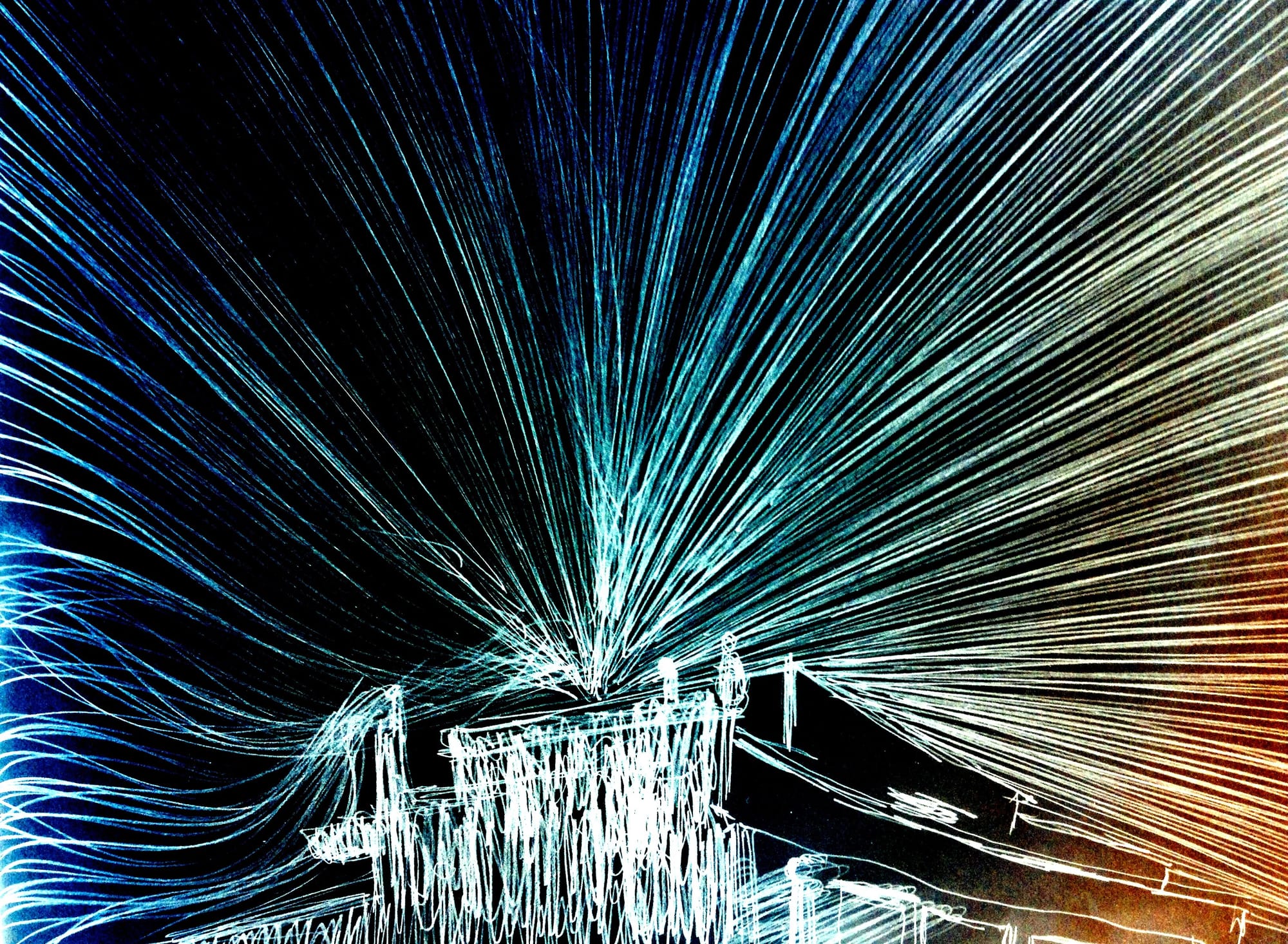
Interview by Richard Marshall
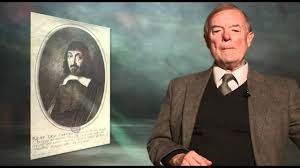
'So far this is not specifically Christian – indeed Descartes preferred not to get involved in doctrinal questions of Christian theology. But his worldview is certainly theistic: he maintained that God was not just the author of the laws of mathematics and physics, but also the ultimate source of goodness.'
'There is, for Descartes, more to a human being than a bodily machine moved around by an incorporeal soul. He emphatically dissociated his position from Platonic-style “angelism”—the reduction of human beings to the status of immaterial souls making use of bodies.'
'... the underlying point about the sensory faculty remains the same on both the Darwinian and the Cartesian picture: the faculty in question is configured in a way that is governed by functional or utilitarian constraints (to do with health and survival), not by any supposed aptness of the faculty in tracking the truth.'
'In the domain of philosophy of religion, we need, in my view to move from a ‘epistemology of detachment’ to an ‘epistemology of involvement’. An epistemology of detachment, so far from being the paradigm of proper philosophizing that it is often supposed to be, may be a way of hardening oneself against the porousness and receptivity that is a necessary condition for certain kinds of evidence to become salient.'
'My own stance in philosophy of religion is of a broadly Pascalian kind, that is to say, we need more focus on what might be called ‘reasons of the heart’. I think that the kind of evidence that is decisive in moving people towards a religious outlook cannot be accessed from a neutral and impersonal standpoint.'
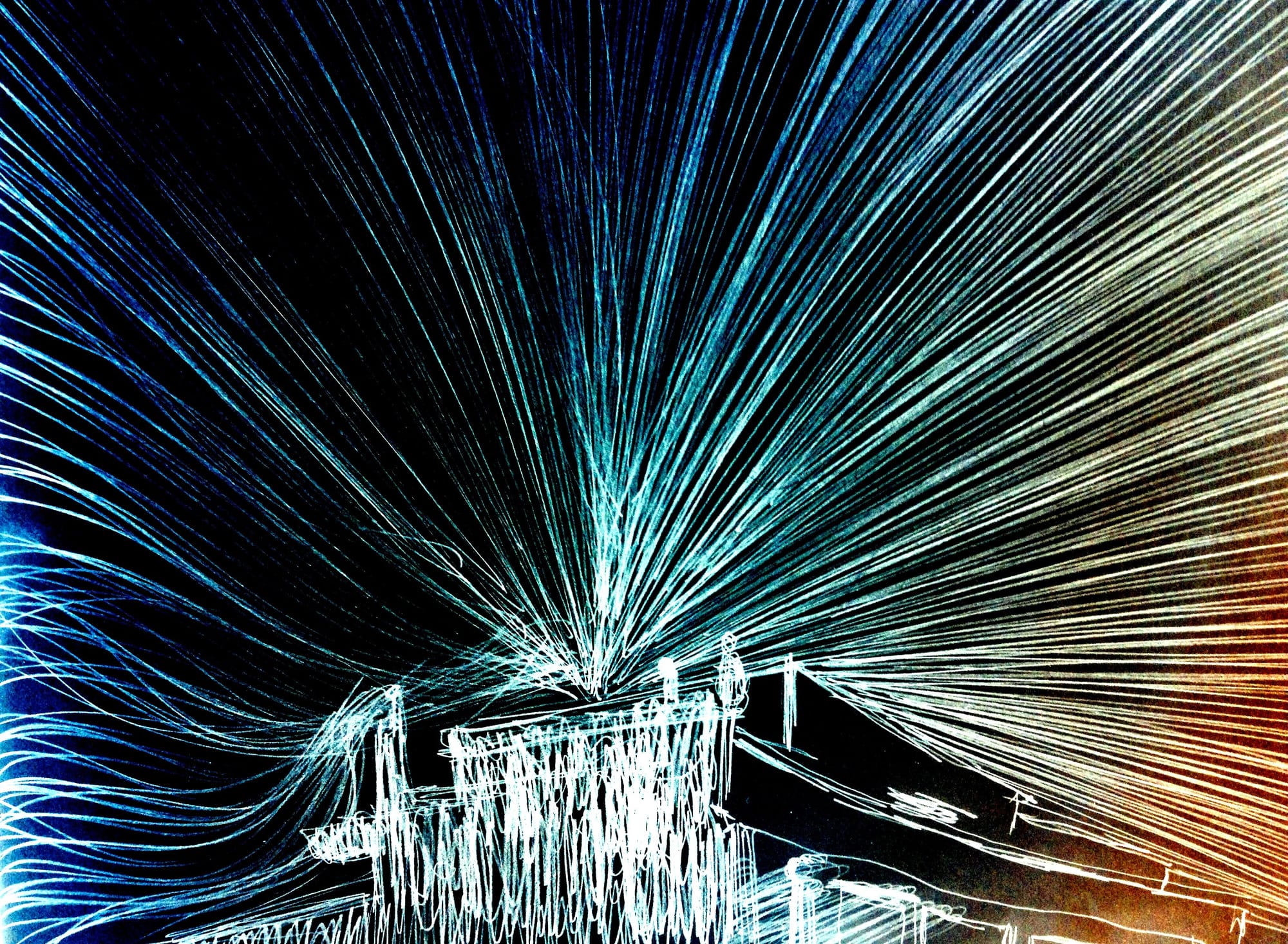
John Cottingham is interested in Descartes, the early rationalists, moral psychology, ethics and religion. Here he discusses Descartes and his theistic outlook, his arguments about our essence, his dualism, Descartes and Darwin, whether Descartes is doing metaphysics or epistemology, his rationalism, whether he thought we were persons or humans, philosophy of religion and moving from an ‘epistemology of detachment’ to an ‘epistemology of involvement’, why we might believe, why an epistemology of involvement doesn't give religion a free pass, a humane philosophy of religion, the soul and conscience as a guide to the good where our true fulfilment lies.
3:16: What made you become a philosopher?
John Cottingham: I specialised in Latin and Greek at school, and went on to do ‘Mods’ and ‘Greats’ at Oxford, which focused on Classical literature in the first two years and automatically moved on to Philosophy for the final two. Not all the contemporary philosophy I read at the time struck a chord – this was the heyday of so-called ‘ordinary language’ philosophy, much of which I found somewhat pedantic and dreary. But as a graduate student, working on Descartes, I became strongly attracted to what I have come to call a ‘synoptic’ conception of philosophy, the attempt to achieve an overview of how various areas of our thought – metaphysics, theory of knowledge, ethics, psychology, theory of the mind – take their place in a comprehensive vision of reality. The struggle to see how different parts of our conceptual scheme fit together or clash, and how far they can be shaped in to a coherent worldview — this has always seemed to me the unique appeal of philosophical inquiry.
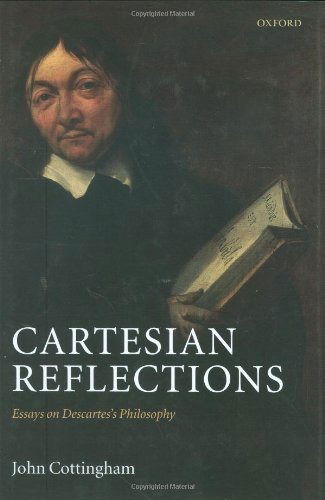
3:16: You’re an expert in Descartes so let’s start with him. Can you sketch for us an overview of his philosophical project which is for you paradoxically one which was about overthrowing the conventional wisdom of his day (replacing Scholasticism with mechanism) whilst establishing the truth of a Christian theology. How does he attempt this?
JC: Descartes saw that the traditional scholastic methods in physics – invoking the supposed ‘substantial forms’ and ‘real qualities’ of things – were a dead end from the explanatory point of view. Saying that objects fall because they have the quality of gravitas or ‘heaviness’ does not advance our understanding. He realized that progress in science needed instead a quantitative approach: the way forward was to devise mathematically precise laws relating the size shape and motion of the particles of which matter is composed. In this vision he has turned out to be basically correct (even though the laws of motion he himself formulated were unsatisfactory in various ways). But Descartes also insisted that his new mathematicised physics could not be the last word. To explain why the laws of motion were thus and not otherwise it was necessary to invoke God. And as is well known, he attempted to prove the existence of God by clear and distinct reasoning, starting from the indubitable fact of his own existence – as he put it in one of his lesser known early works, Sum, ergo Deus est (“I am, therefore God exists”). So far this is not specifically Christian – indeed Descartes preferred not to get involved in doctrinal questions of Christian theology. But his worldview is certainly theistic: he maintained that God was not just the author of the laws of mathematics and physics, but also the ultimate source of goodness.
3:16: Descartes famously argued that our essence is thought but the move from the fact that I am aware of nothing else but thinking as belonging to my essence to - and that nothing else does in fact belong to it - has been controversial. Do you think the “Clear and Distinct Perception Defense", or the "Epistemic Criterion Defense” work or is there a better option?
JC: I don’t myself think any of the proposed defences of Descartes’s reasoning here work. Perhaps I may be able to frame some conception of myself as nothing else but a thinking thing, but Descartes cannot show that such a conception affords a complete account of my essence. For all I know, something else (biological properties, or electrochemical properties, for example) might be essential to my nature. Or again, Descartes argues, from his ability to doubt the existence of the body, that this ‘thinking thing’, this ‘I’, is “entirely independent of the body, and would not cease to be what it is even if the body did not exist” (he says this explicitly in the Discourse on the Method). But the fact that he is able to doubt he has a body does not show that he could really exist without one. The basic problem with the strategy of trying to move from epistemic premises (about what I know, or am capable of doubting) to conclusions about essences was acutely pointed out in 1641 by Descartes’s contemporary Antoine Arnauld, who used a geometrical analogy. I might be able to doubt that a right‑angled triangle has the property that the square on its hypotenuse equals the sum of the squares on the other two sides, but this fails to show that the property in question is not in fact an essential part of what it is to be a right angled triangle. My own intuitions as to what can be doubted have no ultimate authority in this matter, any more than they have in the case of what is essential to my own nature.
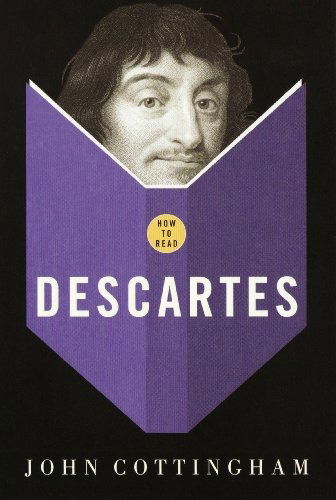
3:16: Descartes is famously a dualist but you argue that there’s a curious tension between Descartes' recognition of the facts of human experience on the one hand, and on the other hand his doctrine that we are essentially incorporeal or non-physical substances. Can you say how Descartes argues about the relationship between the mind and material body and does this tell us how he thinks causation operates generally? And how he can argue that we’re not the same as angels which are supposed to be pure thinking things?
JC: The “curious tension” you refer to arises from Descartes’s saying that this “me” is essentially incorporeal – a pure “thinking thing”, and his also saying that I am intimately united with my body. On the one hand Descartes wants to say that the immaterial mind is something complete and independent in its own right. This is what we have come to call ‘Cartesian dualism’. But on the other hand he wants to preserve the (traditional scholastic) idea that it is genuinely and substantially united to the body – that we are not incorporeal angelic spirits inhabiting mechanical bodies, but genuine human beings of flesh and blood.
The key to all this is what Descartes has to say about sensory experience. Despite what labels like “Cartesian dualism” or “the ghost in the machine” might suggest, Descartes was not ready to ascribe such sensory experience straightforwardly to an immaterial soul. On the contrary, he thought of sensations and feelings and passions and appetites as bearing witness to our embodied nature as creatures of flesh and blood. There is, for Descartes, more to a human being than a bodily machine moved around by an incorporeal soul. He emphatically dissociated his position from Platonic-style “angelism”—the reduction of human beings to the status of immaterial souls making use of bodies. Descartes insisted, on the contrary, that in human beings mind and body are united “in a real and substantial manner” by a “true mode of union”; and our sensations (like hunger, thirst, pleasure, and pain) bear witness to this intimate union. Speculating on what it would be like if we were purely thinking beings, like an angel, Descartes suggests that an angel would have thoughts, but would not have sensations. Sensory experience, our vivid awareness through sight, hearing, taste, smell, and touch of the world around us, and our internal bodily awareness of a variety of pleasurable and painful sensations, is the signature of a genuine human being, an essentially embodied creature.
All this puts Descartes’s “dualism” in a rather different light from the way it is normally presented. For it turns out that not two, but threecategories are needed, according to Descartes, in order to do justice to our human nature. A strictly dualistic framework recognizes only two types of notion: the soul, or immaterial mental substance, and the body, with its physical structures and mechanisms. But when a thinking substance is joined with a body so as to form a truly integrated unit, then there arises, for Descartes, a new and distinct kind of phenomenon: sensory experience, which cannot be attributed to mind simpliciter, nor to the body, but which is a distinctive kind of attribute belonging to genuine human beings, compounded of mind and body.
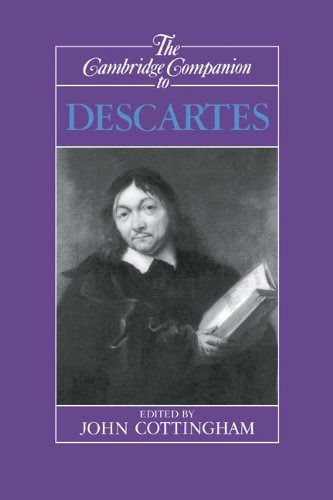
3:16: You claim that there are close links between some of the things argued for in the Sixth Meditation by Descartes and ideas of Darwin. So was Descartes a Darwinian naturalist?
JC: In much of the Sixth Meditation, Descartes is concerned to explore the nature of the intimate union or intermingling of mind and body. And as I said in answer to your previous question, our sensory experience as human beings is crucial for understanding Descartes’s thinking in this area. What emerges in the Sixth Meditation as regards the faculty of sensation turns out to have some remarkably affinities with some aspects of Darwinism. Descartes tells us that the key to understanding the functioning of the senses is their survival value. What matters, Descartes insists, is not whether they provide a complete or accurate picture of the truth, but their utility for the health and flourishing of the organism. As a pioneer of the modern theory of stimulus-response mechanisms, Descartes was able to combine his claim about the functional role of the sensory faculty with the outcome of his studies in psycho-physiology, which led him to think there is always a constant, one-one correlation between a given physiological input and a particular type of signal being delivered to the centre of consciousness. When all this is put together, we have the result that the senses will inevitably mislead us from time to time, but without this counting against their functioning in a way that is, in general and in the long run, beneficial for survival.
For Darwin, of course, this beneficial process is purely fortuitous, driven by no more than the blind forces of random mutation plus natural selection, whereas in the Sixth Meditation Descartes sees things in terms of how the natura hominis, the nature of humankind, is configured (constitutum) by a benevolent God. This latter view may be termed ‘providentialist’, but providence certainly does notneed to be construed in a crudely interventionist way, or as implying some kind of fundamentalist insistence on the literal truth of the six-day creation narrative in Genesis. Descartes himself (following Augustine) regarded the Genesis narrative as metaphorical , and in his writings on cosmology and physiology he took an evolutionary view of the gradual development of the universe, culminating in the emergence of terrestrial phenomena such as plants and animals. But that issue aside, the underlying point about the sensory faculty remains the same on both the Darwinian and the Cartesian picture: the faculty in question is configured in a way that is governed by functional or utilitarian constraints (to do with health and survival), not by any supposed aptness of the faculty in tracking the truth.
3:16: Is Descartes doing epistemology or metaphysics - he seems to get an awful lot of ontology out of pure rational cogitation which kind of belies his reputation as the father of modern scientific thinking?
JC: I think it is a mistake to think of Descartes as an ‘epistemologist’ in the modern sense of one who is preoccupied with questions about doubt and scepticism. The purpose of his arguments, Descartes observed in the preface to his Meditations, was not to prove ‘that there really is a world, and that human beings have bodies and so on – since no sane person has ever seriously doubted these things.’ The point of his arguments establishing the external world, says Descartes, is that ‘in considering them we come to realize that they are not as solid or as transparent as the arguments which lead us to knowledge of our own minds and of God’.
These latter arguments certainly come under metaphysics, but as has often been pointed out, one of the chief aims of the Descartes’s metaphysical inquiries was to secure solid foundations for science. Descartes supposed that the innate ideas implanted in our minds by God give us accurate knowledge of the general logical and mathematical principles in terms of which the universe is structured. But, to pick up your phrase, it is highly misleading to think of him as relying solely on ‘pure rational cogitation’. For in science, he never denies the necessity of observation and experiment, and indeed goes so far as to stress their crucial importance in deciding between rival explanatory hypotheses. In the Discourse he points out that the principles he can deduce a priori are only very simple and general ones, so that there are many different ways in which any given effect could be deduced from them. He goes on: “I know of no other way of discovering this than by seeking further observations whose outcomes vary according to which of these ways provides the correct explanation.”
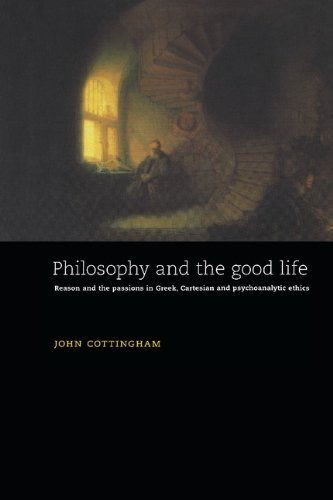
3:16: Descartes is often characterized as a rationalist but he does give a role to the passions as well doesn’t he? Can you say why he does and what role they play in the search for goodness and truth – and are there links between Descartes and Plato and Aristotle respectively regarding the pursuit of these things for the good life?
JC: One unattractive ‘rationalist’ doctrine with which Descartes is often credited is apriorism: the bizarre view that the whole of science can be spun out deductively from the armchair. As I said in answer to your previous question, that is certainly not Descartes’s view. In another sense, ‘rationalist’ might perhaps refer to someone who places excessive reliance on the powers of reason, and downgrades the value of the emotions. Descartes is not a rationalist in this sense either. If the good life is to be a life for human beings, the passions are to be embraced, according to Descartes, since their operation is intimately related to our human welfare (as we saw in relation to your previous question about Darwin). This is not to say that the passions and emotions are always and uncontroversially good. Because of the relatively rigid way innate physiological mechanisms and environmentally conditioned responses operate, we may become locked into behaviour that lead to distress, misery or harm. Descartes gives as an example his own irrational tendency to be strongly attracted to cross-eyed women, which he traced back to an experience in his childhood. But the appropriate way to cope with such irrational impulses is not to retreat to an austere intellectualism, nor to suppress the passions, but rather to use the resources of science and experience to try to understand what has caused things to go awry, and then to attempt to reprogram our responses, so that the direction in which we are led by the passions corresponds to what our reason perceives as the best option. This is, broadly, the programme outlined in Descartes’s last work, the Passions of the Soul.
This is not entirely at variance with Aristotle’s view, though Aristotle stresses the value of habit and upbringing for regulating the passions, while Descartes adds in the possibility of scientific understanding of the way in which the physiology underpinning the passions can be understood and, if necessary, modified. As regards Plato, the Christianized Platonist in Descartes acknowledges that ‘the soul can have pleasures of its own’; but, that said, he immediately goes on to stress the value of the affective dimension which arises from the inescapably bodily side to our humanity: “The pleasures common to soul and body depend entirely on the passions, so that persons whom the passions can move most deeply are capable of enjoying the sweetest pleasures of this life.”
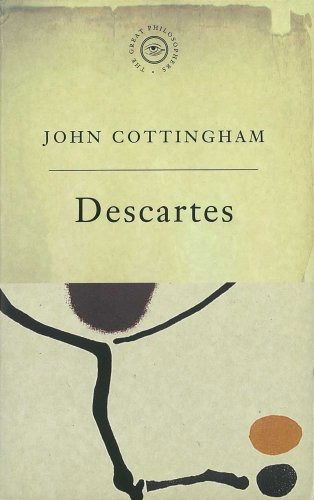
3:16: Did Descartes think we are persons or humans – and what do you think about this distinction?
JC: In the strange and resonant phrase he uses in the Discourse on the Method, Descartes speaks of ‘this “me” [ce moi] that is to say the soul, by which I am what I am.’ This has some affinities with the Lockean idea of a person, a conscious self. But as I’ve already indicated, Descartes is clear that many aspects of our lives, the sensory, emotional and passionate aspects, belong to us not qua immaterial spirits but qua human beings, compounded of soul and body.
As regards my own view, I think we are human beings, and that the terminology of “persons” can be both philosophically suspect and morally dangerous. It seems at first sight innocuous, since in ordinary English, a person just is a human being – anyone you happen to meet. But in Lockean terminology it becomes the “conscious self”, a supposedly immaterial soul that could even flit from body to body (so that, as Locke puts it, the “soul of a prince might enter and inform the body of a cobbler”) – with the absurd result that Aristotle pointed out when discussing the idea of transmigration of souls, that there would be no intelligible relation between form and matter, “as if carpentry could be embodied in flutes”. In the moral domain, the idea of personhood can be dangerous if, as in Kantian ethics, dignity and worth is attached not to our humanity, but to our status as conscious rational beings. One great benefit of the Judaeo-Christian religious and philosophical heritage is that it takes us back to a more robust notion of corporeal embodiment as the basis of our humanity. We are not mysterious incorporeal beings, but are formed out of the dust of the earth (as Genesis says, and as modern evolutionary theory confirms); we are ‘informed matter’, as Aristotle would have put it; that is the key to our identity. And our moral status stems from this human status, not from any privileged entitlement accorded by philosophers to possessors of their own favourite attribute of rationality.
3:16: Well that makes a nice sugue to your work in philosophy of religion. You see philosophy of religion as different from many specialized branches of philosophy and you are sceptical of an approach to religion that sees itself as offering an alternative account about the universe to science, citing Richard Swinburne as a paradigm case of someone doing that. You are sympathetic to the frustration of Richard Dawkins when he confronts this sort of philosophy of religion. So why is the Swinburne position wrong headed and if it is why isn’t that the end of philosophy of religion? I guess the question here is why you don’t think scientism right and philosophy of religion a special region of philosophical enquiry, perhaps one that you think runs on as a new paradigm of philosophy and thinking after Cartesian compartmentalism has run out of steam, just as the Cartesian paradigm took over after Scholasticism ran out of steam?
JC: You raise lots of questions here. First, it is no part of my position to disparage the philosophically highly sophisticated attempts of Richard Swinburne and others to construct probabilistic proofs of God’s existence. If I had to choose between the dogmatic dismissal of religion purveyed by Dawkins and the arguments in favour of theism offered by Swinburne, I should regard the latter as greatly superior from a philosophical point of view. But my qualms about the Swinburnean approach concern the question of evidence. My own stance in philosophy of religion is of a broadly Pascalian kind, that is to say, we need more focus on what might be called ‘reasons of the heart’. I think that the kind of evidence that is decisive in moving people towards a religious outlook cannot be accessed from a neutral and impersonal standpoint. It is not ‘spectator evidence’, to use a term coined by Paul Moser.
In the domain of philosophy of religion, we need, in my view to move from a ‘epistemology of detachment’ to an ‘epistemology of involvement’. An epistemology of detachment, so far from being the paradigm of proper philosophizing that it is often supposed to be, may be a way of hardening oneself against the porousness and receptivity that is a necessary condition for certain kinds of evidence to become salient. The evidence that draws someone to become a believer hinges on certain kinds of personal experience, as opposed to being a body of evidence from which there is a logical or probabilistic conclusion to be drawn by anyone who responsibly attends to the data. No one can be compelled to have, or to acknowledge, such experiences: they require a certain kind of focused attention, a certain motivational stance that might best be described as a listening or attunement. What is more, such experiences are not ‘data’ presented for our speculative assessment and inference. Rather, we ourselves are part of the evidence, as we open ourselves to something that is resistible, something that does not compel our assent, but which, if we are responsive, has the power to transform us – not in such a way as to enhance our store of knowledge, or to allow us to make better inferences, but so as to irradiate our lives with meaning and value that we cannot create for ourselves. I explore some of these themes in my Philosophy of Religion: towards a more humane approach.
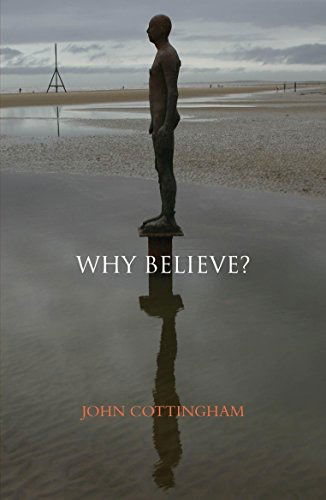
3:16: You wrote a book, Why Believe? and it seems a good question for a modernity whose serious intellectual grounding is science . What can our feelings and responses to a purely naturalistic world have to do with belief in something non-naturalistic and other worldly? How can we have belief in transcendence if we know there isn’t another world other than this naturalistic one. Aren’t theological moves like those we find in Spinoza and Moltmann fatally hooked on the failure of nature and human nature both to deliver anything like a God (entropic heat death and clever ape) as are non-theological attempts at transcendent meaning as in Nietzsche’s art (merely refined sex drive) ? And values don’t escape this naturalism either, do they, so it really can’t matter how we respond to them if actually they are just human? Surely nothing less than another realm, on the vertical not the horizontal so to speak, will do the job –and there just isn’t one?
JC: I would agree you that in the modern worldview ‘serious intellectual grounding’ is provided by science. But your question seems to presuppose a more extreme position – that serious intellectual grounding is provided only by science. Yet that cannot be right, can it? There is a whole domain of meaning and value, a whole range of human belief and activity, that is not grounded in, or encompassed by, the language and methods of science. This includes not just the meaning and value explored in literature, poetry, the whole domain of imaginative and affective discourse, but also the domain of meta-inquiry – what we are doing now when we discuss these questions about philosophy and religion and science. In your previous question you asked why I don’t think scientism is right. The obvious answer to that is that if scientism is the thesis that science provides the only possible serious intellectual grounding, that thesis itself cannot be established by the methods of science, and hence is self-refuting.
You ask if values escape naturalism, and answer in effect that they cannot, since they are “just human”. If this means that discourse concerning value is just a disguised way of referring to our human preferences or desires, then that seems to me highly questionable. For it is characteristic of authentic moral values and obligations that they exert an authoritative demand on us, whether we like it or not. We may often turn away from what is good and right, but even as we do turn away we recognize that moral demands retain an undeniable authority over us. To use an image borrowed from Gottlob Frege in the very different context of logic and mathematics, they are like boundary stones that our thought can overflow but not dislodge. In my book Why Believe?, and its sequel, How to Believe, I argue that our experience of the authoritative nature of moral demands is strikingly consistent with a theistic worldview, and does not fit well into a reductionistic picture where values are, as you put it ‘just human’.
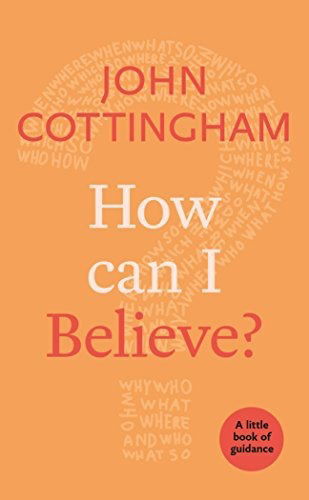
You ask how we can believe in transcendence given that ‘we know there isn’t another world other than this naturalistic one.’ I’ve already suggested that there are many parts of our human experience that ‘transcend’ the naturalistic world, in the sense they cannot be captured via the language and methods of the natural sciences. But I also think there may be something misleading in the way you frame the question in terms of ‘another realm’. Traditional theology has always regarded the ‘transcendence’ and the ‘immanence’ of God as two sides of he same coin. The kinds of experience which for the believer point us towards the divine are not typically of a ‘spooky’, other-worldly kind, but include, as I’ve indicated, our powerful responses to the demands of morality, and the kind of exaltation at the beauty of the natural world which many poets have described. The imagery which Gerard Manley Hopkins deploys when he speaks of “grandeur of God”, which “will flame out like shining from shook foil,” is not concerned with spooky or supernatural auras, but with the wonder and mystery of the natural world we inhabit.
There are many such examples where our ‘natural’ human experience seems to be irradiated with a special kind of meaning that bears witness to our human longing for transcendence. I think that few people, if they are honest, would not acknowledge that something like the strange longing in question has made itself felt at some stage in their lives, perhaps in a moving encounter with a great work of art or architecture, perhaps through the extraordinary power of music, perhaps in deep emotions of wonder and harmony evoked by the natural world around us, or perhaps the unfathomable mystery of closeness with one we love. The fact that such experiences are so hard to describe in the dry factual language of literal truth only reinforces the need for philosophy, if it is to have any pretentions to come to terms with the mystery and complexity of the human condition, to draw on additional resources than those available via the austere tools of logical analysis, invaluable and indispensable though those tools are.
These richer resources are afforded by the creative and imaginative arts, and by the human mind itself when it allows itself space for the kind of open listening and attunement that is crowded out in our daily dealings with the necessities of life. In such moments, what wells up within us is an inchoate desire buried deep within the human mind—the longing of the weak and imperfect and confused human creature for something it cannot fully grasp, but of which it has vivid intimations in those elusive but powerfully moving human experiences that are often called “spiritual”.
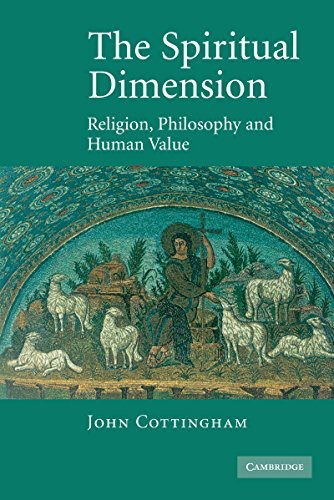
3:16: And why don’t you think philosophical detachment useful in the sphere of philosophy of religion? Doesn’t that just give religion a pass from having to face up to rigorous cross examination? Are you thinking that there’s something flawed in the analytic philosopher’s approach to philosophy in general or is this just in this particular sphere? What kind of evidence is relevant then for religious belief and if not subject to detached examination how can we know it really is evidence? Are the passions enough?
JC: I don’t think my position ‘gives religion a free pass’. It’s worth remembering that a whole range of our ordinary human beliefs – the beliefs two friends hold about the state of their relationship, for instance, or the beliefs a professional musician has about whether a certain composition works – will crucially depend for their validation on the occurrence of certain internal experiences and responses and transformations. Of course such experiences are not infallible: as with any support for our beliefs, the evidence of my own responses may need to be carefully scrutinised –for example, to see if it is compatible with other parts of my belief system, including, to be sure, evidence derived from science. (Some may be inclined to insist in advance that the results of science must necessarily exclude the possibility of a theistic interpretation of my experience. But such an insistence is of course not itself a scientific result.) What is more, other relevant evidence from the responses and the transformations experienced by other people may be called upon to support my confidence in the validity of my own reactions; so we are not dealing with something entirely within the unsupported domain of private subjectivity. At all events, there are clearly whole swathes of our human cognition where the beliefs we have will depend on evidence drawn from the nature of our own personal experience – from what is made strongly manifest to our consciousness with an authenticity and power that we cannot in integrity deny.
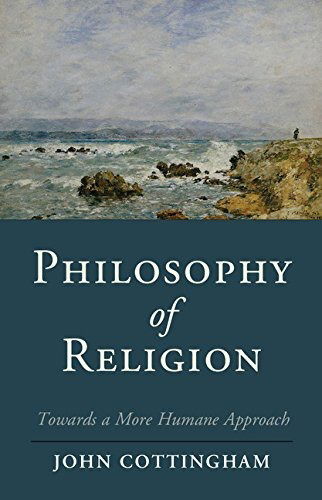
3:16: Can you sketch for us your conception of a humane religion and why isn’t it just an esoteric version of secular humanism?
JC: I don’t think I have used the phrase ‘humane religion’ in my writings, though I have argued for a more humane philosophy of religion. A goal that has increasingly informed my work in recent years is to promote a more “humane” conception of philosophizing in general. While in no way discarding the technical tools of the professional philosopher such as abstract argumentation and analysis, whose value and importance are unquestionable, this approach is also ready to draw on the full range of resources available to the human mind, including those that depend on literary, artistic, poetic, imaginative, aesthetic, and emotional modes of awareness. Such an approach is, I believe, particularly apt when it comes to philosophizing about religion, The key point here is that much religious discourse is multilayered – it carries a rich charge of symbolic significance that resonates with us on many different levels of understanding, not all of them, perhaps, fully grasped by the reflective, analytic mind. Any plausible account of the human condition must make space for the crucial role of imaginative, symbolic, and poetic forms of understanding in deepening our awareness of ourselves and the reality we inhabit. And for this reason it may be a serious error to try to reduce all religious thinking to a bald set of factual assertions whose literal propositional content is then to be clinically isolated and assessed. Some philosophers may suppose that any departure from complete analytical detachment would involve a loss of philosophical integrity; and certainly there is need for philosophical caution whenever our imaginative and emotional resources are made use of. But equally, if we insist on maintaining a detached analytical stance at all times, this may be less a sign of intellectual integrity than what Martha Nussbaum has called ‘a stratagem of flight’ – a refusal of the openness and receptivity that is prepared to acknowledge all the dimensions of our humanity. The task, after all, is to enrich our philosophical understanding of religious thought and experience, and there is no reason to suppose that achieving such understanding always has to be a comfortable, detached, purely ‘academic’ matter.
Turning to religion itself, to be religious is not just to espouse certain doctrines; it is to follow a certain way of life and to take up certain commitments. It is in part a project of formation, of forming or reforming the self, a process of askēsis (training).This in turn connects with what is, for many people, a crucial part of religious adherence, namely, the disciplines of spirituality (which include prayer, fasting, meditation, and the like). The learning envisaged here is, of course, not merely intellectual but moral: the goal is to change, to set aside the spurious goals of self-aggrandisement, and to grow in wisdom and love of the good. And for this reason, the ‘conversion’ at which spiritual practices have traditionally been aimed is not conceived of as something that can be completed on a particular day, or even over a single season, but is thought of as a lifelong process. The Rule of St Benedict, for example, dating from the sixth century, speaks of a conversatio morum, often translated ‘conversion of life’, a continuous reshaping and renewal of one’s whole character and way of life, which will often be a long and arduous process. The overall picture here looks rather different from what we typically find in secular humanism, though I’m happy to allow that there are many areas of overlap.
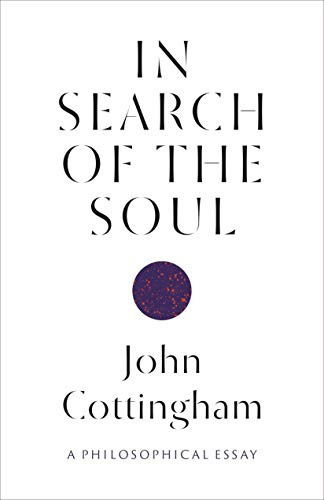
3:16: You have written recently about the quest for the soul. You begin by citing Phillip Pullman’s book about daemons and raise the question whether souls are possible outside of fantasy fiction. So are they and what is the most satisfactory understanding of what souls are? Although you seem to say that souls are not necessarily understood in religious terms isn’t it the case that it is a term that seems deeply entwined with religious thought which arouses the suspicion that using it smuggles in theological ‘spooky’ interests and meanings?
JC: In my most recent book, In Search of the Soul, I argue that we do not have to think of the soul as a ghostly immaterial substance. There is an alternative tradition, with roots going back to Aristotle, which thinks of the term “soul” as referring instead to a set of attributes or powers belonging to the human being. On this view I am not an immaterial soul but a human being, a creature of flesh and blood; but in virtue of the way my brain and nervous system are configured, I am able to think and feel and reflect – to be conscious. I am not a soul, but (to use an Aristotelian term) I am ‘ensouled’ – that is to say, possessed of faculties of thought and feeling and consciousness that depend on the intricately configured physical and biological processes that underpin them, but which are not reducible to mere physical processes. To speak of the ‘soul’ in this sense is thus not to commit to the dubious idea of ghostly immaterial substances, but to point to those distinctive human capacities that enable us to engage in the whole rich human repertoire of conscious activities.
Perhaps the most supremely important of these activities is the search for meaning and value in our lives, and this may help to explain why the terminology of ‘soul’ is still found in many different contexts in our contemporary culture where something of deep moral importance is at stake. The concept of the soul may not be part of the language of science, but we immediately recognize and respond to what is meant in poetry, novels, and in ordinary speech, when the term “soul” is used. For it alerts us to certain powerful and transformative experiences that give meaning to our lives Such experiences might include the joy that arises from loving another human being, or the exaltation when we surrender to the beauty of a great artistic or musical work, or, as in Wordsworth’s poem Tintern Abbey, the “serene and blessed mood” where we feel at one with the natural world around us.
There is an ancient question from the Gospels, “What does it profit a human being to gain the whole world and to lose their soul?” Though the idea of the soul may seem problematic to many people today, we all still grasp the underlying challenge posed by this question. We intuitively grasp what is meant by the loss in question—the kind of moral disorientation and collapse where what is true and good slips out of our grasp and we find we have wasted our lives on some specious gain that is ultimately worthless.
Using the terminology of soul in connection with these widely shared human experiences and aspirations need not necessarily imply any explicit commitment to a religious worldview. And certainly the religious believer has no monopoly on those profoundly human moral aspirations which Socrates described in terms of ‘the care of the soul’. Nevertheless, it is a mark of our human nature that when we seek for the good we can never rest content with achieving a predetermined set of goals. Even if all the conditions for welfare and comfort were secured for us, there would remain a restless longing for something more. There is that strange forward reaching of the human mind, described in many spiritual writers, a longing for something we dimly glimpse as out of our final reach, yet in which we somehow participate, in so far as our mental reach can never be finally closed off or circumscribed.
Talk of the soul is thus connected with the human longing for transcendence which I spoke of in answer to your previous question.In our perennial human search for truth, beauty and goodness we yearn to align ourselves with something beyond ourselves, and in the transformative human experiences and practices we call “spiritual”, we glimpse something of transcendent value that, as Iris Murdoch (herself no theist) once put it, has the power to “purify our desires”. Holding on to the language of the soul is way of empowering us to acknowledge and foster these deep human longings that are an ineradicable part of our nature.
3:16: How do you understand conscience and repeating your own question: what’s its history and does it have a future?
JC: The persistence, down the generations, of feelings of conscience appears to come from roots that are deep in our human nature, namely that we aspire to the good, and yet are often drawn to evil. Given what seems indisputable, namely our inherent conflictedness in this respect, conscience can be seen, as it has been seen by many religious writers, as a necessary ally in the pursuit of the good – something, as traditional language has it, that speaks for our ‘higher’ nature, against the promptings of the lower. Casting conscience in this exalted and essentially benign role turns out on reflection to be quite compatible with psychoanalytic insights about its harshness (of the kind we find for example in Sigmund Freud and Jacques Lacan); for the harshness, on the psychoanalytic account, stems from its being ‘separated off’ as an alien voice of punishment and control, whereas the idea of genuine moral growth (to which most psychotherapists are as a matter of fact strongly committed) presupposes that this voice can be freed from its tyrannical overtones, once it is properly integrated into a healthy self-image, and seen as directing us to the good where our true fulfilment lies.
Conscience as guide to the good where our true fulfilment lies. Does such an account presuppose, in the end, a theistic worldview? A naturalistic alternative would be to say that the operation of conscience (maintained and transmitted down the generations, and no doubt given specific shape by the mores of society in any given epoch) derives ultimately from no more than contingent facts about the way our species happens to have evolved. David Hume in the eighteenth century was perhaps the most eloquent spokesman for such a view, when he proposed that morality is founded ultimately on the natural feelings of benevolence we find within us. Moral virtues, he remarked, have a ‘natural beauty and amiableness’ which ‘recommends them to the esteem of uninstructed mankind and engages their affections’. An integral part of this is the operation of conscience – although, consistently with his sunny vision of human nature, what Hume stresses is not the torments of guilt and shame, but the joys of a quiet conscience – ‘inward peace of mind, consciousness of integrity, a satisfactory review of our own conduct.’
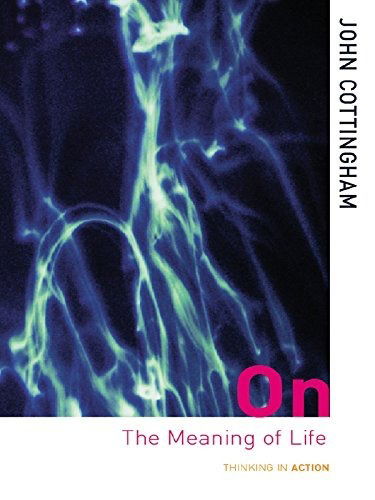
Yet what is doing the ‘reviewing’ and pronouncing it satisfactory? Just another feeling – a vague feeling of warmth? And why should that feeling have authority over the others? The conflictedness of our nature cannot be ignored, even by someone who takes such a benign view as Hume. Along with the ‘particle of the dove’ which he maintained was ‘kneaded into our frame’, he was obliged to acknowledge ‘elements of the wolf and serpent’. Bernard Williams once spoke of our human inheritance as an ‘ill-assorted bricolage of powers and instincts’. But in doing so, perhaps he unwittingly revealed the poverty of a Humean-style naturalistic ethic, based on no more than a competing collection of impulses, and perhaps even the wretchedness of the human condition once morality is cut loose from some form of theistic underpinning. For all our sakes, we must hope that conscience does have a future.
3:16: And for the curious readers here at 3:16, are there five books you could recommend?
JC: It’s hard to pick just five. But given the entrenched prejudice against religious modes of thought in our modern philosophical culture, here are five titles that might stimulate some readers to have second thoughts:
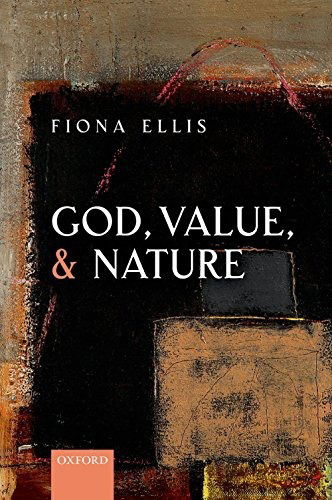
Fiona Ellis, God, Value and Nature.
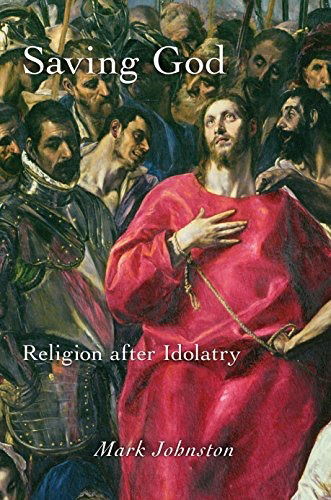
Mark Johnston, Saving God: Religion after Idolatry
Iain McGilchrist, The Master and His Emissary
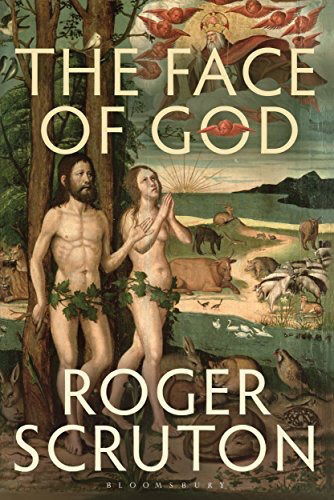
Roger Scruton, The Face of God
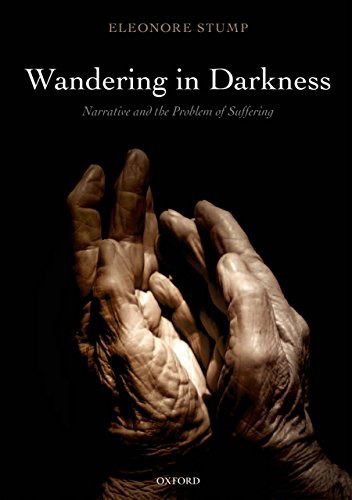
Eleonore Stump, Wandering in Darkness
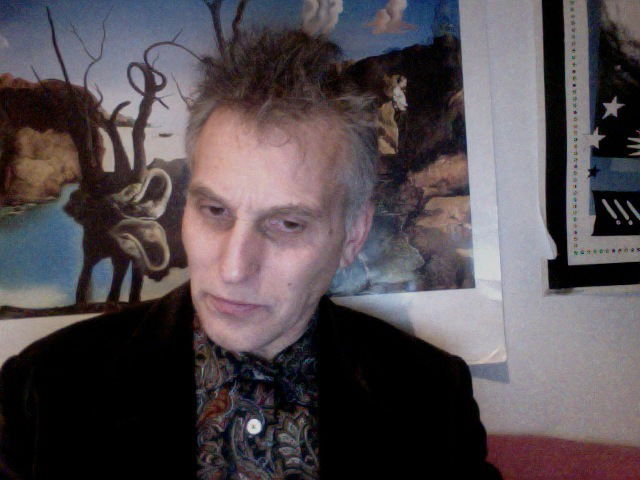
ABOUT THE INTERVIEWER
Richard Marshall is biding his time.
Buy his second book here or his first book here to keep him biding!
End Times Series: the index of interviewees
End Time series: the themes
